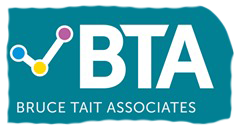9 October 2024 / Kyle McAuley
Home
/ News & Views
/ Is the 5-Day Office Week Returning? What It Means for Your Organisation’s Future.
Imagine if your employer instructed you to ‘Return to the Office’ five days per week starting January 2025. How would you react? Would you welcome or resist the instruction? Asks Andrew Penker Chartered FCIPD MIoL Associate Director of BTA.
Well, this was the message delivered to Amazon Corporate Office team members recently. You likely saw the message through your usual news feeds i.e. BBC News.
The significant point to note is that it is not applicable to all Amazon team members but to those in the owned corporate offices rather than the leased contact centres, who will remain working remotely.
Return to the Office:
The headline turned heads and return to the office is becoming an increasingly emotive subject and one which may be more realistic, as according to the KPMG 2024 CEO Outlook report, which surveyed 1,300 CEOs around the world – including 150 in the UK, more than four-fifths (83 per cent) of UK CEOs expect to see a full return to the office within three years, up 19 percentage points from last year.
Are you thinking about making any changes to the hours of work in your organisation?
Do you know what other organisations in your sector are planning to do?
Employee Value Proposition:
An Employee Value Proposition (EVP) is a unique set of benefits and values that an organisation offers to its employees in exchange for their skills, experience, and commitment.
A strong EVP helps attract, engage, and retain top talent by clearly communicating what makes the organisation a great or preferred place to work.
The elements that comprise an EVP can include:
• Work-Life Balance/Blend: Flexible working hours, remote work options, and leave policies.
• Pay: Salary, bonuses, and other financial rewards.
• Benefits: Pensions, Insurance, and other.
• Career Development: Opportunities for growth, training, and advancement.
• Company Culture: The organisation’s values, mission, and social purpose.
Home or Remote working:
Have you introduced a home-working policy, and do your terms of employment state a specific place of work i.e. the office or your employee’s home? If you changed your working practices to become more flexible post-pandemic, has hybrid working become your ‘new normal’ over the last few tears?
Do you know how important it is for your team members to have flexibility over their place of work?
The answer to these questions may influence how you approach making any future changes to the current working arrangements with your team members.
The How:
Recognising your obligations to consult team members about any changes, and how you wish to be perceived as an employer who listens to their team members, is important if you wish to become or maintain your status as a great or preferred employer.
Reward Survey:
Join other organisations in the non-profit and social impact sector and complete the BTA Reward Survey to share your opinion on flexible working as well as pay and benefits, and discover what other organisations are either doing or planning to do in the future.


